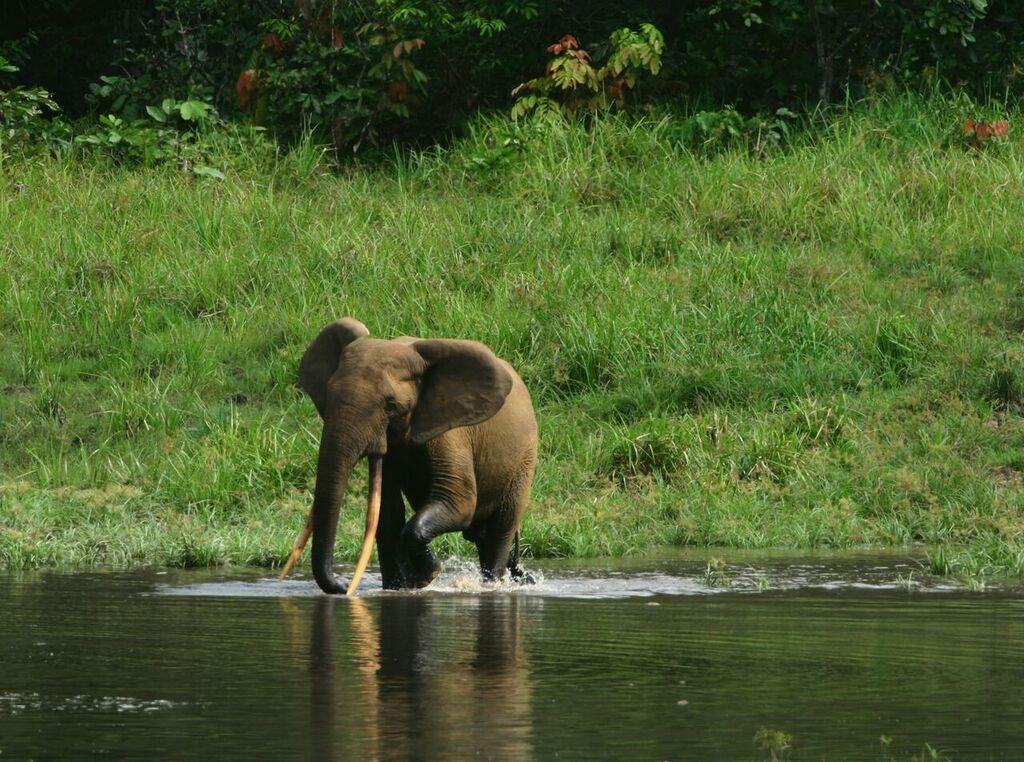New TV show tells of capture of Gabon ivory smuggling gang

Your support helps us to tell the story
From reproductive rights to climate change to Big Tech, The Independent is on the ground when the story is developing. Whether it's investigating the financials of Elon Musk's pro-Trump PAC or producing our latest documentary, 'The A Word', which shines a light on the American women fighting for reproductive rights, we know how important it is to parse out the facts from the messaging.
At such a critical moment in US history, we need reporters on the ground. Your donation allows us to keep sending journalists to speak to both sides of the story.
The Independent is trusted by Americans across the entire political spectrum. And unlike many other quality news outlets, we choose not to lock Americans out of our reporting and analysis with paywalls. We believe quality journalism should be available to everyone, paid for by those who can afford it.
Your support makes all the difference.The extraordinary story of how the Gabonese wildlife service managed to capture the biggest ivory smuggling ring in the country’s history has been revealed by a new document.
The programme, which was shown on the central African nations’s 24-hour TV news channel, detailed how it took two years for the criminals to be captured in an investigation that had been codenamed Operation Nzok, which means elephant in the local Fang language.
The ivory smuggling network was busted in November last year and it was found that in 2017 alone more than 600 tusks, weighing a total of more than six tons, had been smuggled out of Gabon to Cameroon and West Africa.
More than $250,000 had been raised by the gang due to its nefarious activities.
Gabon’s President, Ali Bongo, told viewers that the operation had been an important step in ensuring that those seeking to pillage the country of its ivory were punished.
“I can tell you today, in no uncertain terms, that we are fighting a war against illegal natural resource extraction,” he said. “If we lose, we risk losing control of our nation and our destiny.”
The investigation had mobilised the elite units from not only the country’s wildlife service but also the national Gendarmerie, police and intelligence services. It was supported by not only the French Directorate-General for External Security but also Interpol.
When the gang was finally arrested elite tactical units, including tracker dogs, were deployed.
The head of the ivory network, it was found, was a Chadian citizen called Abdoulaye Mohamoud Ibrahim. He and eight accomplices, including his wife, son and daughter-in-law were arrested.
A manhunt was then launched for the operation’s financial mastermind, a shadowy figure known only as Wague. He too was finally captured after being on the run for eight days.
Subsequent forensic analysis of their telephones and computers demonstrated a link to the Boko Haram terrorist network operating in West Africa.
All have now been prosecuted for running an organised criminal organisation for the purpose of ivory smuggling.
Professor Lee White, the head of Gabon’s national parks agency, said: “We face organised poaching gangs that are ever more violent, shooting on sight today when they encounter our patrols. Organised criminal networks, some of which are linked to Boko Harem terrorists, are hunting down the forest elephants.”
More than 80 per cent of forest elephants in Central Africa outside of Gabon and Northern Congo have been lost in recent years.
In Gabon 70 per cent of elephants in the northe east province of Minkebe, where poaching pressure is highest, have also been killed.
However, elsewhere in the country where the country’s wildlife service has been able to provide filler protection, such as Loango and Wonga Wongué, populations are reported to be starting to recover.
Join our commenting forum
Join thought-provoking conversations, follow other Independent readers and see their replies
Comments